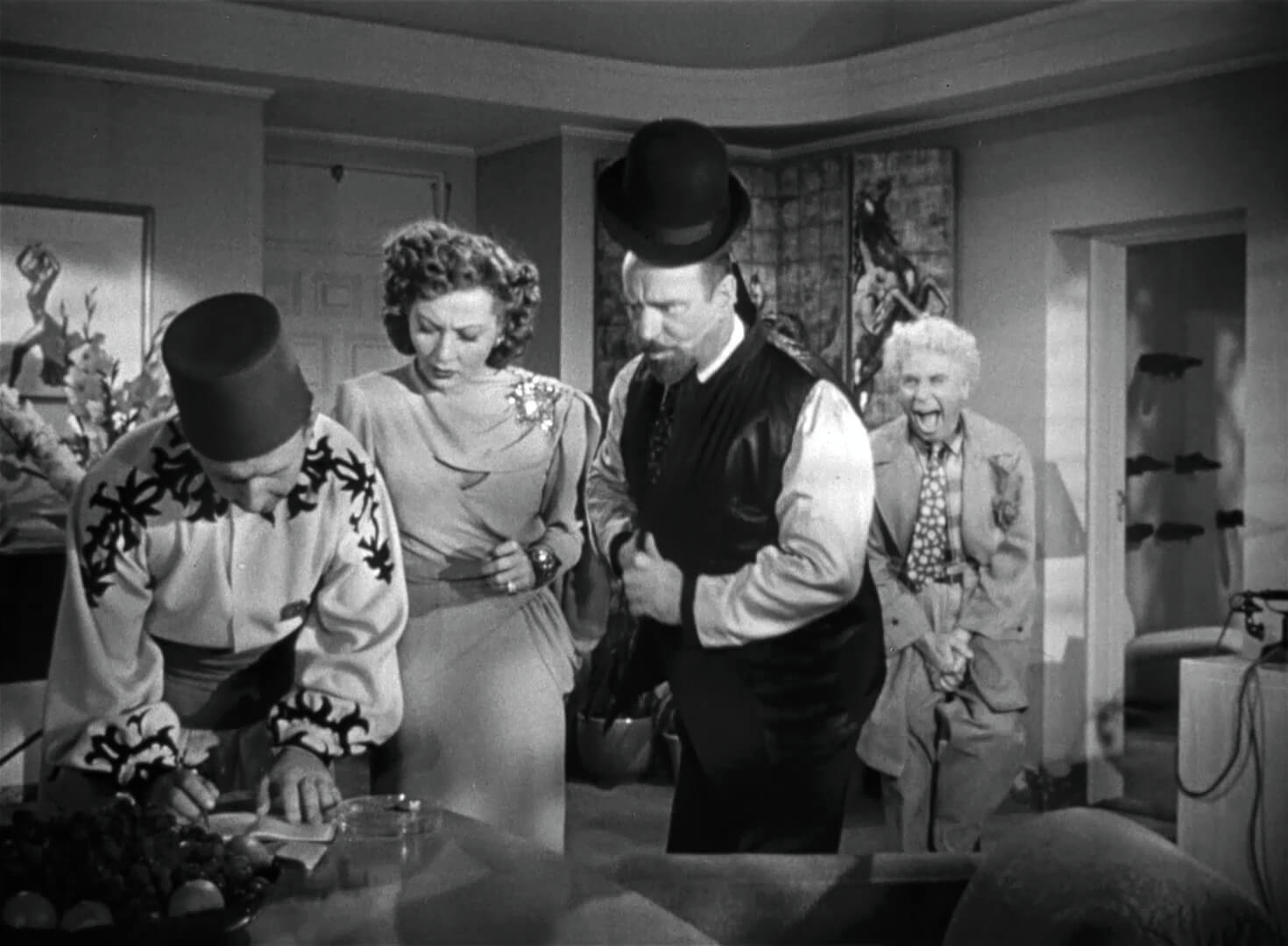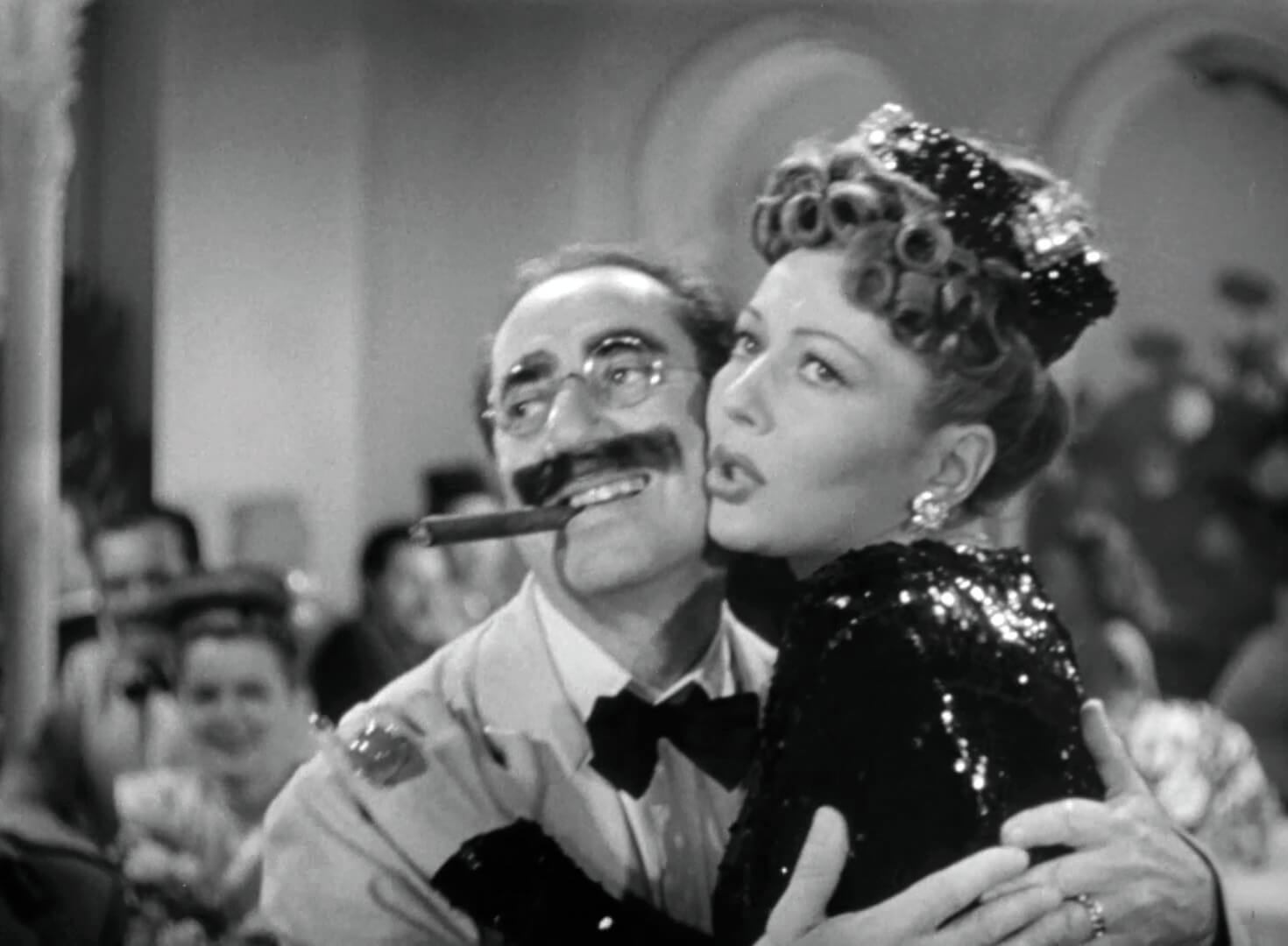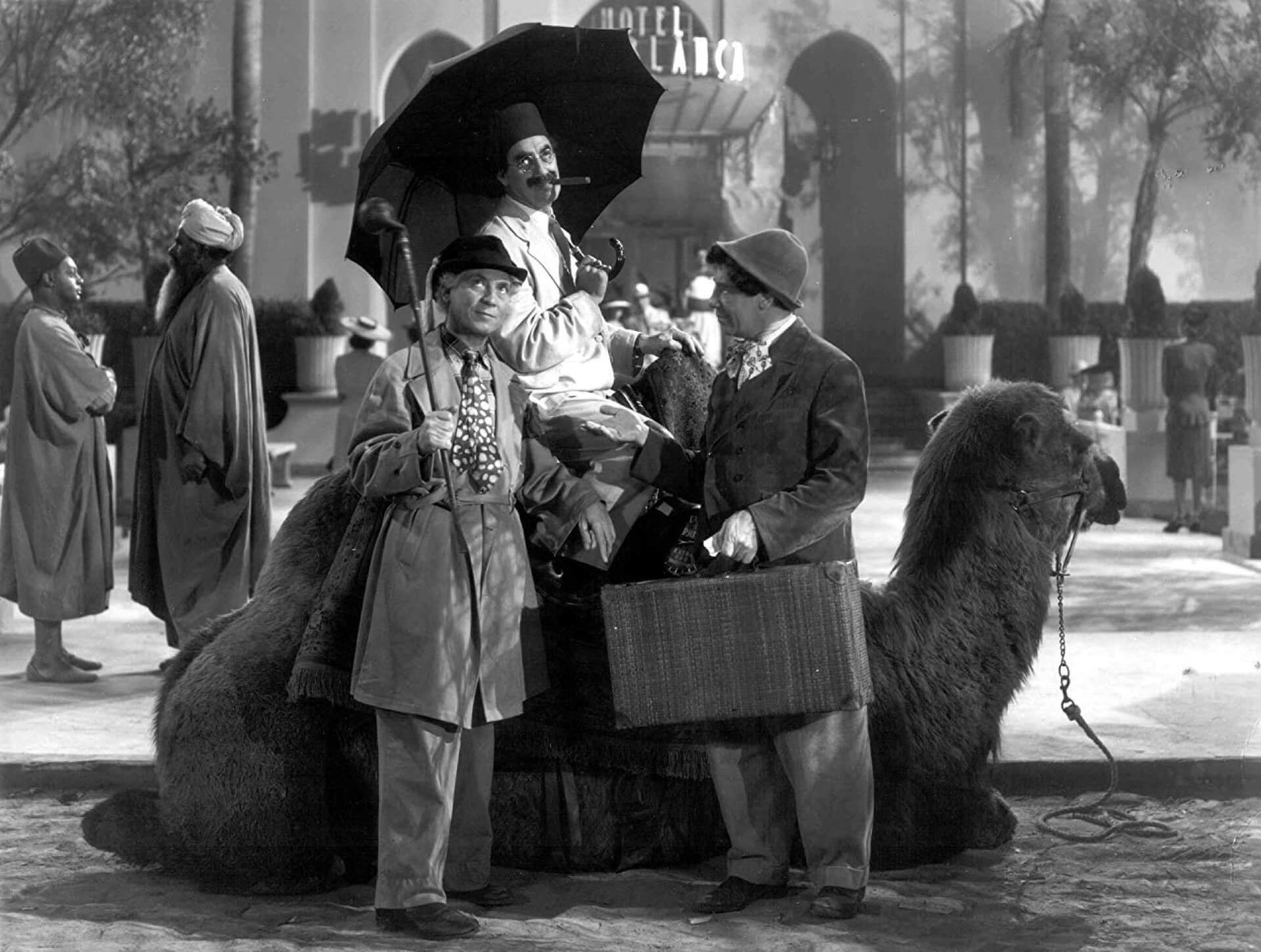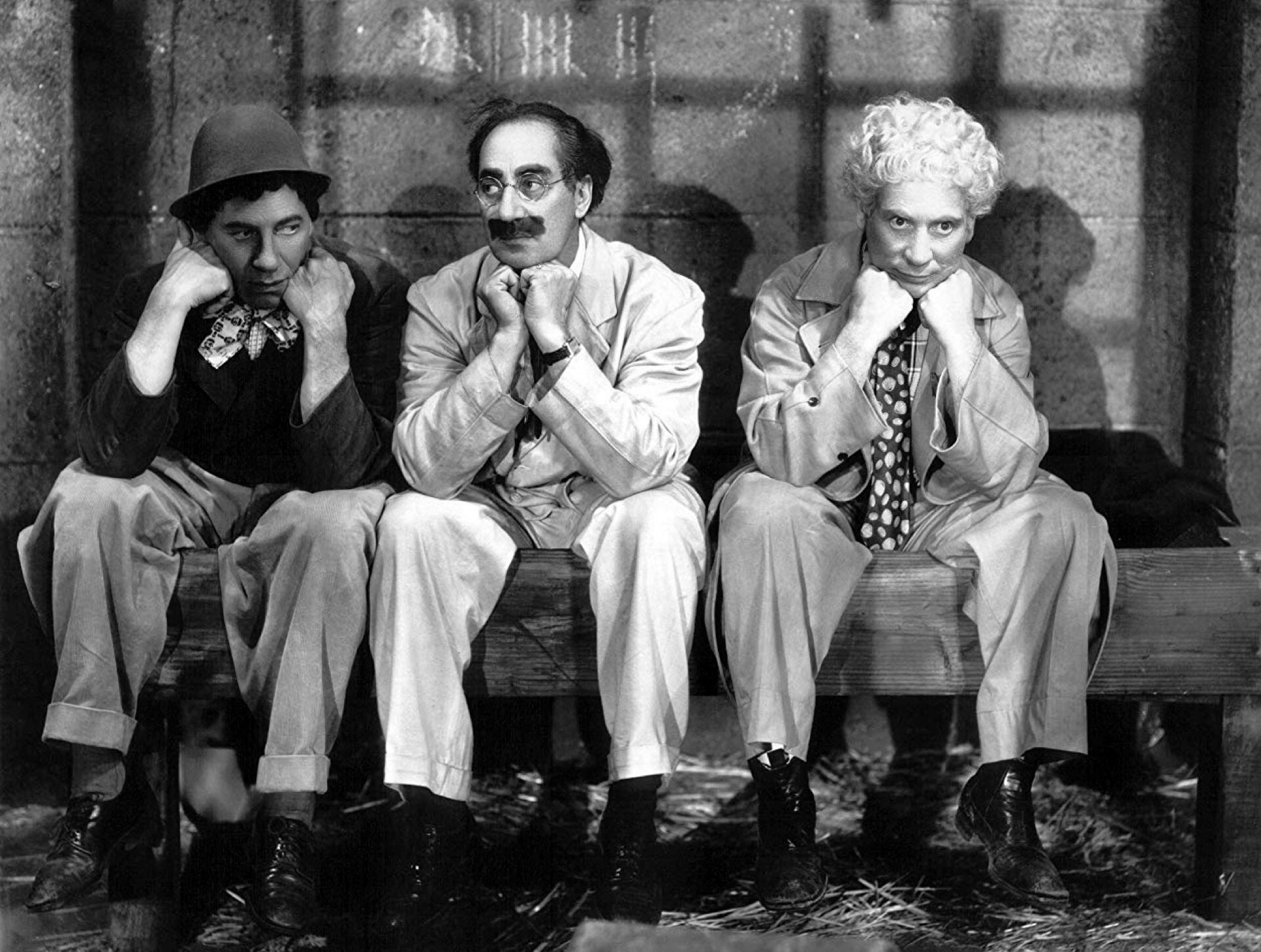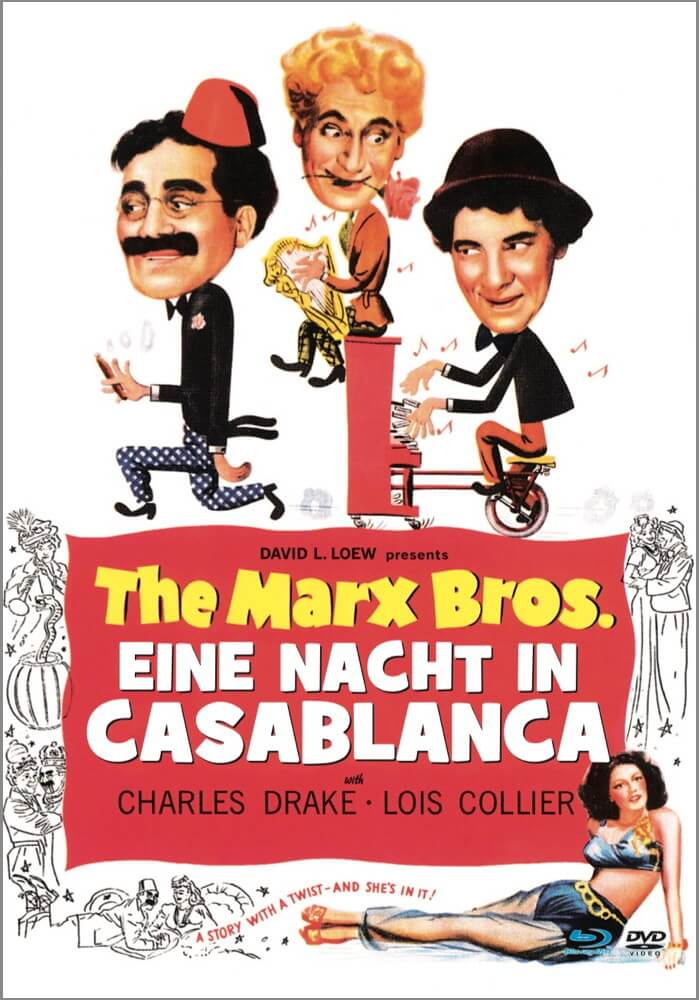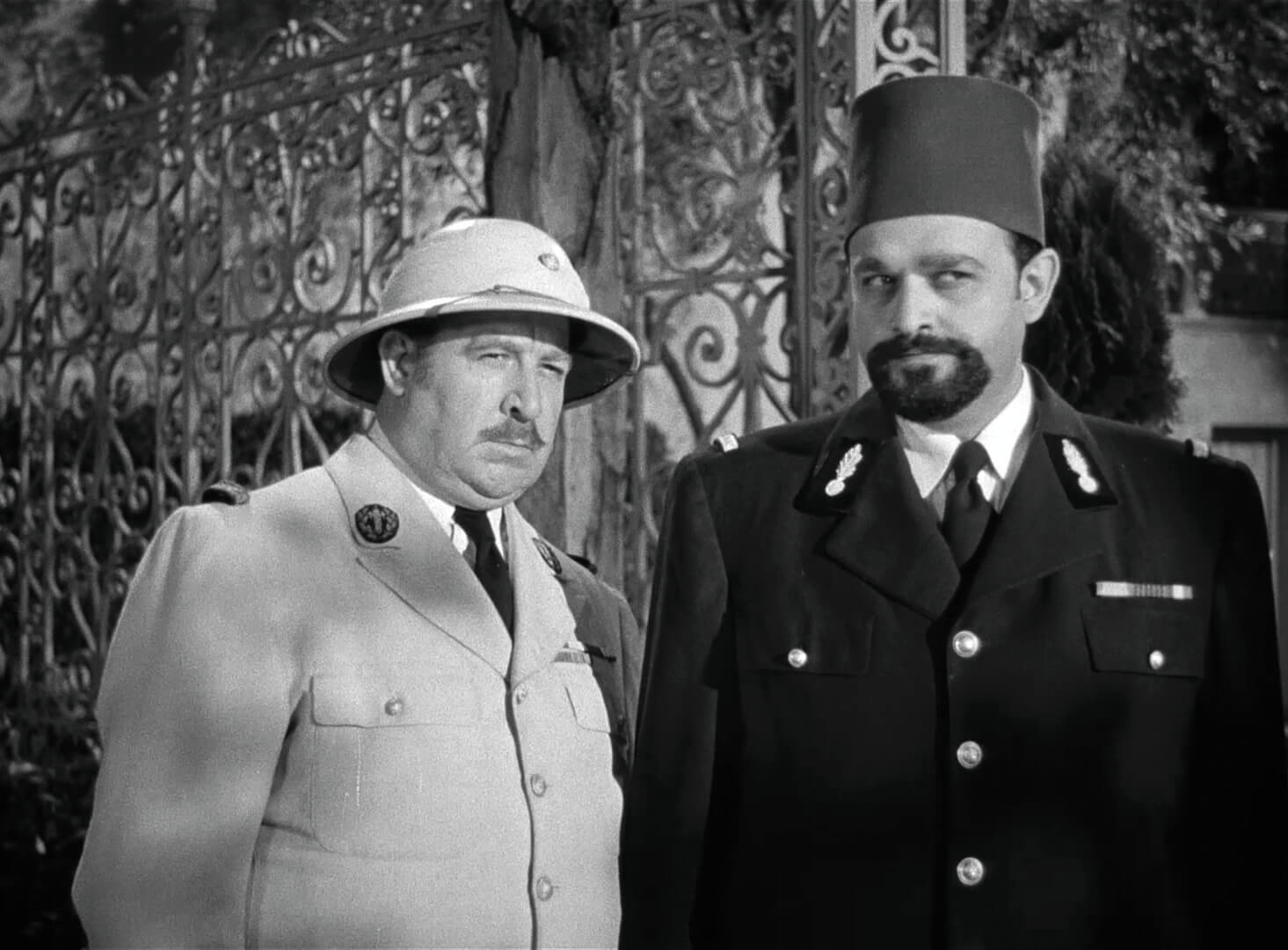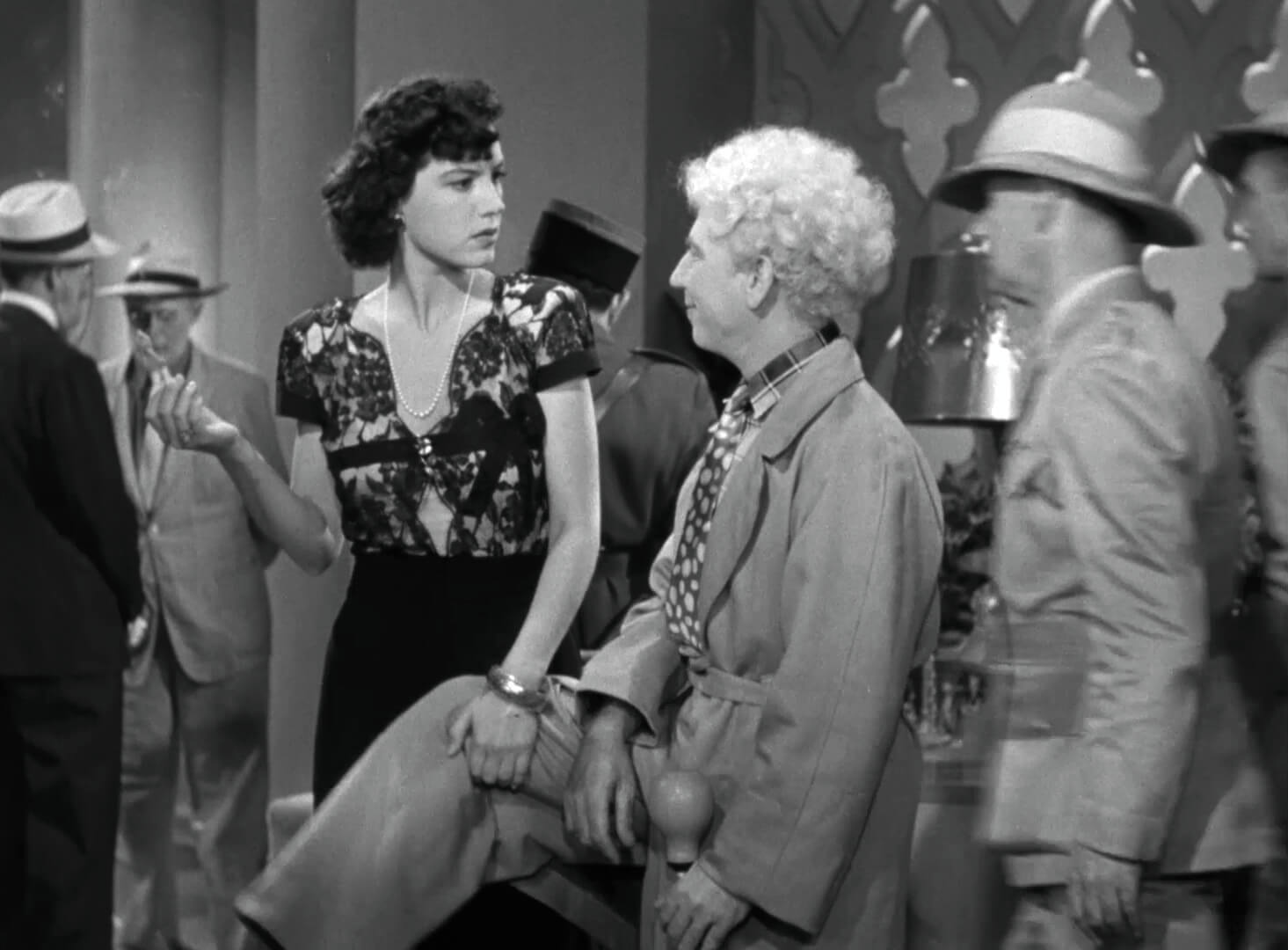Original title: A Night in Casablanca
Director: Archie Mayo
Screenplay: Joseph Fields, Roland Kibbee, Frank Tashlin
Actor & actresses: Groucho Marx, Harpo Marx, Chico Marx, Charles Drake, Lois Collier, Sig Ruman, Lisette Verea, Lewis L. Russell, Dan Seymour, Frederick Giermann, Harro Meller, David Hoffman, Paul Harvey, Alex Ball, Edward Biby, Eugene Borden, Nick Borgani, James Conaty, Mary Dees, Joe Dominguez, Nestor Eristoff, Adolph Faylauer, Kenneth Gibson, Herschel Graham, Stuart Hall, Art Howard, Mike Lally, Ethelreda Leopold, Wilbur Mack, Harold Miller, Sol Murgi, Paul Ravel, Waclaw Rekwart, Suzanne Ridgway, Ruth Roman, Harry Semels, Sammy Shack, Stephen Soldi, Larry Steers, Count Stefenelli, Arthur Tovey, Philip Van Zandt, Bob Whitney
Producer: David L. Loew
Cinematography: James Van Trees
Sound: Frank Webster
Cutting: Gregg G. Tallas, Grace Baughman
Specal Effects: Harry Redmond Jr.
Kostüme Design: Eva Gord
Makeup: Otis Malcolm, Scotty Rackin
Music: Werner Janssen (eingespielt mit dem “Janssen Symphony Orchester von Los Angeles”)
Production company: Loma Vista Productions
Year of production: 1946
Genre: Crine, Comedy
Country: USA
Languages: English, German, French
Dubbing: German
Length: 85 Min
Rating: FSK 6
Aspect ratio: 1.37 : 1
Sound: Mono (Western Electric Recording)
Color: black & white
Resolution: HD



